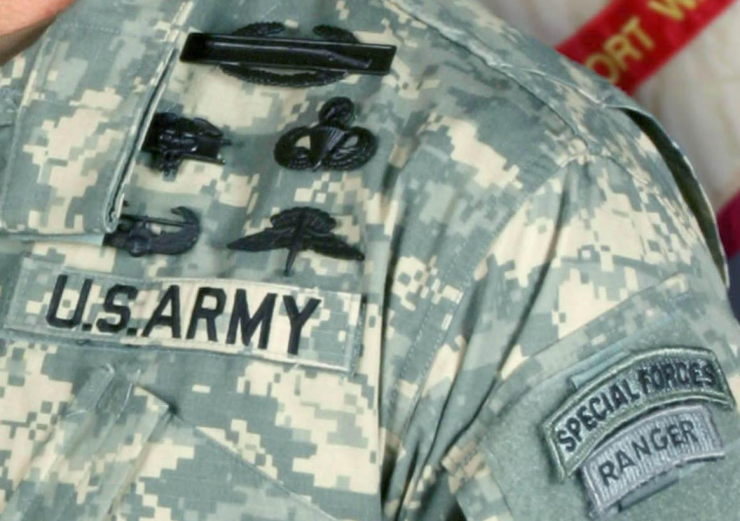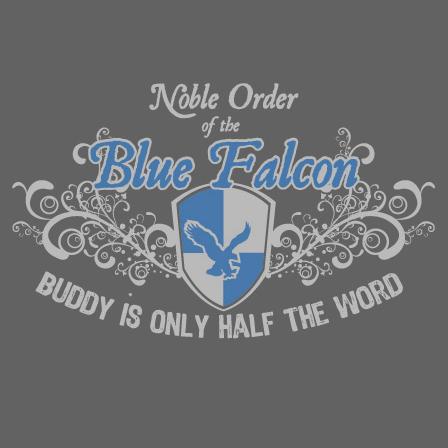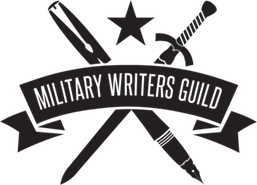You can tell a lot about someone based on their uniform. Especially in the Army. In fact, we regularly violate the “Don’t judge a book by its cover” dictum. Hell, we stomp that dictum into the dirt and build a fighting position on top of it. When meeting each other, soldiers tend to size the other person up, checking for deployment patches, skill badges (airborne, air assault, pathfinder, etc), tabs (Sapper, Ranger, Special Forces), and combat infantryman/action badges. We then develop profiles in our minds based on the presence (or absence) of these items.
Which is just plain wrong.

Yes, it’s good to know that someone has been to a lot of schools or been in combat. Yes, we should take pride in these items. This is not meant to denigrate the positive aspects of skills badges and tabs. However, while these items show the background of the individual, they do not express the individual’s character as a person. And as leaders, that is what we should be interested in. Nearly 90% (yeah, I made this number up, but it represents the allocation of my time) of being a leader is judging characters and learning how to work with different people. The Army is, after all, a human environment. The drones have not taken over.
Yet.
Some soldiers wear their badges, tabs, and patches as their outward “brand,” to quote the ever-quotable Doctrine Man. They demonstrate that the soldier has been tested and passed some of the Army’s most trying schools and environments. Unfortunately, the Army does not have a badge for perhaps the most important skill of all: integrity. Quite honestly, it would save a lot of time if they did, as a lot of a leader’s time is spent in evaluating the integrity of their superiors, peers, and subordinates. Can I trust my new commanding officer to treat myself and my soldiers fairly? Will this new NCO on staff live up to the rack of skills badges he sports? Just because my peer has a tab, does that mean that she or he will collaborate easily on this project or will they disappear at the first sign of work? Can I trust that this soldier will be truthful to me in all their dealings just because they have a combat action badge?
Integrity runs the gamut of truthfulness, reliability, and trust, and governs all of our personal interactions with those we serve with. If you think this isn’t the case, just watch what happens when someone’s integrity disappears: it’s nearly impossible to get back. The military as a whole has seen a spate of high-ranking officers and NCO’s take career nosedives due to integrity violations. No one wants to serve with someone who has a poor character, much less be led by them. Even the perception that someone is unpleasant to work with can tank one’s reputation; just ask anyone on staff who the one person is who is perennially late to submit their work through laziness, or who pawns their piece of the plan off on everyone else. The term “Blue Falcon” was created for a reason, after all.

When you enter a new unit or organization, it is quickly apparent to see who the soldiers with character are. They are typically the ones who are the first to greet you, help you assimilate into the unit, and are often the ones carrying the largest workload because they’ve been tagged by the boss as being dependable. They care equally about taking care of soldiers and completing the mission, because they realize that people make up the organization, and people perform the best if they feel their needs are being met. Perhaps they’re all tabbed and badged out; perhaps they’re a “slick-sleeve” (never deployed). Judging them by these outward criteria alone would be a disservice to them and to yourself. Keep a close eye on your own “brand” or “integrity skill badge,” and make sure that you spend as much time building it as you do gunning for new Army schools to attend.
And don’t be a Blue Falcon.
Enjoy what you just read? Comment, like, or share on social media, using the buttons below.




Very true. As a former Marine, I was fascinated by the quantity of items on a Soldier’s uniform. A Marine might have held off a battalion of North Koreans singlehandedly, winning a Navy Cross, and you wouldn’t be able to tell it from his fatigues. Different culture, I suppose. One thing for sure: a badge signifies past accomplishments, not future potential (though past performance seems to be the best judge of future performance). People change, and leaders have to monitor and mentor their troops (even the salty ones).
When I was on active duty, we called them “Bravo Foxtrots”, and pretty much everyone was a Bravo Foxtrot at one time or another. I heard the “Blue Falcon” variation years later after joining the Air Guard.
Thanks again for your perspective.
LikeLiked by 1 person
100% agree. The Marines have an actual uniform (everyone wears the same thing!). We need to just do what you guys do and save the show off shit for our class as.
LikeLike
not even that…all it says is “I went to an extra school, because I kissed the a$$ of someone above me.” I spent 25 years in the Army, and have seen this happen first hand.
LikeLike
This piece makes me grateful that the Canadian Army does not see a place for skill badges and tabs on our combat uniform. Most of the time in garrison, if you see a stranger, all you know about his or her trade is their cap badge and usually a regimental flash under their rank slip-on. Beret colours can be a clue as well: green for the army as a whole, maroon if someone is in an infantry regiment’s jump company, and tan for special forces. That’s it. We did have a discussion about introducing combat tabs during the height of our Afghanistan deployment, but sensibly, I think, that idea was rejected.
You only see a comrade’s cv, as it were, when you see them in their dress uniform with ribbons or medals, though as rule we are sparing in the the awarding of these.
As you say, what counts is what you learn about a colleague in day to day interaction. Character will show forth, medals or no medals.
LikeLiked by 1 person
Excellent sumarization of the CAF. Having had a lot of deployments in my career, I was greatful that when I got “home”, I could be me without the stigma.
LikeLike
Someone shared this on FB and I haven’t taken the time to lookup anything about you but am I right in my assumption that you have no skill badges to show? Maybe this is why you are a bit bitter? I am damn proud of my CIB, because it shows I earned my paycheck. If you earned a badge, you may understand the importance of them a little more.
LikeLike
You also did not take the time to read the article.
LikeLike
One thing the CIB can’t demonstrate? Literacy. I mean I haven’t taken the time to read anything about you, and it’s an assumption, but I’m a little afraid that you might be incapable of reading, given the post you’re whining about didn’t denigrate anyone’s precious skill badges.
When I see a knee jerk reaction to posts like this , I’m reminded of a quote from Shakesphere: “The lady doth protest too much.”
LikeLike
I actually have a MBA, Real Estate License, and various other professional certifications.
LikeLike
…and yet you can’t read a short essay. Remind me to never do business with you, I’d be better off lighting my money on fire for warmth.
If you could actually demonstrate the ability to read something for coherence you may understand the importance of it a little more.
LikeLike
Well, I’m not an infantryman, but from what I know about the CIB it doesn’t anymore represent any extra skill or effort on the part of the wearer than the CAB (which I’ve been awarded). A mortar lands 50m outside your tent while you are in the rack asleep and there you go. Probably why when given a choice, most infantrymen will wear the EIB instead- because 100% of the people that have an EIB, actually put the work in. So, in essence you inavertantly support the writers position with your comment.
LikeLiked by 1 person
When did I ever degrade the CAB? I agree with your mortar statement and I have actually heard of just a mortar landing anywhere inside the wire has resulted in personnel receiving CABs and CIBs. However, mine was earned it in Ramadi in 2005. There is not one infantryman I have ever met who would wear an EIB over a CIB.
LikeLike
I agree that not all CAB recipient should have been awarded since it was inside the wire, but it is the rule. I am non Infantry, but I can tell you that we make more enemy contact more than the Infantry Soldiers.
LikeLike
I have nothing against the CAB!!!!! I was in a platoon that was a combination of scouts and grunts. I have nothing against any other MOS. A truck driver was asked why he didn’t join the infantry and his response was, “I want to serve my country but I don’t want to shoot anyone.” How can you think any less of the guy with that response? However, I have the personality type that special skill badges motivate me because I find them inspiring. They aren’t like my purple heart. It just sucks.
Luke O’Brien, say it’s not so. How did you know I was going to propose the two of us doing business together? It was going to be epic.
LikeLike
I earned a few patches and badges, nothing to high speed, while in the army. I didn’t like to wear them. If someone wanted to know me they can spend the time to talk to me.
LikeLike
Going to assume you didn’t read anything in this article except the headline. Wow-you stereotype those of us who were in the Infantry and had intelligence.
LikeLike
I think you missed what the author was saying. “The man makes the badge, the badge doesn’t make the man.” And before you look sideways at me I have five badges.
LikeLike
@veteranrealestate..no it doesn’t…just shows youre a snowflake millennial and need a trophy to show you did something. you get paid the same as an E4 with or without that CIB..dumba$$, CIB is easy to get. ANY MOS can get one. as long as they are attached to an infantry unit, and engage. get off your self created pedestal. don’t be upset your GT score sucked so you had to be an 11, 12 or 13 series.
LikeLike
In a garrison environment I can see how this applies. Though for units on the verge of deployment the badges stand as statment that I have been tested and persevered. You are concerned about the untested soldiers and leaders once the incoming fire starts. When their decisions are actually life and death. Some of the best soldiers and leaders I have served with toiled in garrison but blossomed on the battle field. So before you dismiss someone’s badges remember each has a story
LikeLike
Okay, got it, the article’s not meant to denigrate skill badges, but what’s your “so what?”
My contention is you’re not saying anything original. Good leaders of all services, functions, and rank already understand a person’s effectiveness and skills are proven beyond his uniform flair (mind you, I said “good leaders”).
The preponderance of the skill badge wearers I’ve been associated with in my career have been men of deep character, long after they’ve retired and could no longer be recognized for the bling they’d earned as Profesional Warriors.
You’ve somewhat acknowledged this in your post but to @veteranrealestate’s point you come across as a badge-less dude (which is absolutely nothing to be ashamed of) who says integrity exists beyond the medals.
Got it. Was hoping instead you could offer more original insight.
LikeLike
This was true for me when I first enlisted and then shortly after getting to my first duty station I realized now of that says anything about how that person is. I saw a 2nd LT 5 badges and all 3 tabs. After talking to for a while I learned he’s a really laid back person who has done a lot of stuff while in the army and spent time with all 3 groups to earn his tabs. He got sulected to go to rasp straight from ait and went from there before he desided to fall his goal of when he first wanted to enliste for a short amount of time witch turned in to 15 years before going to ocs
LikeLike
I’d argue the importance is more in the lack of these items. If a Field Grade Officer or Senior NCO lacks a deployment patch after 14 years of persistent conflict, one must ask why. I guarantee the troops are.
LikeLike
Badges can be very misleading in the Army, units get awarded combat badges when one platoon of one company makes contact. I refused to wear my CIB to protest, when I found out that every soldier in the battalion was being awarded CIBs due to the actions of my platoon. I was forced by a very persuasive CSM to put by badge on and keep my mouth shut. Some soldiers complete Ranger training or Special Forces training then spend the rest of their career behind a desk. I personally observed privates perform life saving heroic acts and later have their award down graded to a ARCOM because battalion has already given out too many Bronze Stars. leaves a bad taste in your mouth.
LikeLike
Sure is a lot of salty dudes on here. LOL.
LikeLiked by 1 person
Character and skills are two different things. Some badges mean more than others. Starting with a Ranger Tab and Jump Masters wings. If you know nothing about a soldier you know they had enough character to do a hard demanding school and pass.
LikeLike
Am I the only person here that thinks this easy has nothing to do with badges, ribbons, medals, devices or tabs? Do I need to read this again? Did I just imagine it is about something so much deeper and meaningful?
LikeLike
It is true that in the Army we tend to make judgments on people based on the superficial badges on our uniforms. I have also seen leaders take impressions of people based on their record Brief, even before one’s badges are seen. I personally try to hold off on my impression of someone until I’ve seen them a few times or have gotten to know them. People can always have a bad day.
We must be careful on prematurely judging people as we tend to develop a bias to confirm our initial impression of someone.
LikeLike
While I certainly enjoyed wearing my right shoulder patch after Desert Storm, my real joy was in wearing my flight suit with my aviator wings. But I’m shallow like that, lol. Sadly for pilots today, they wear two piece flight suits with no distinguishing paraphernalia, so they look just like the rest of those foxhole digging grunts.
Easy now, ground pounders. I used to be 11B before I took to the skies, so I fully get that wistfulness I see on your face.
LikeLiked by 1 person